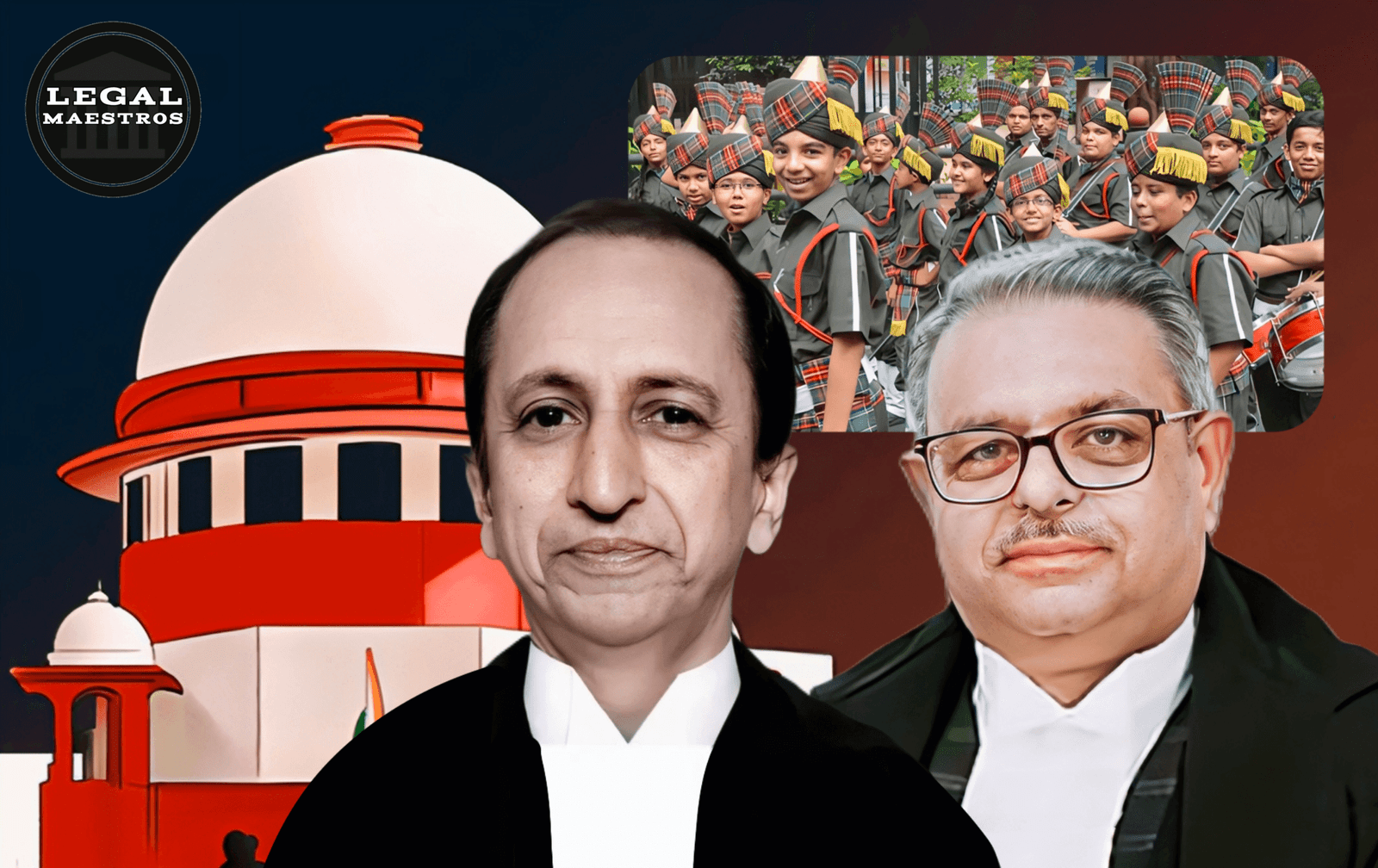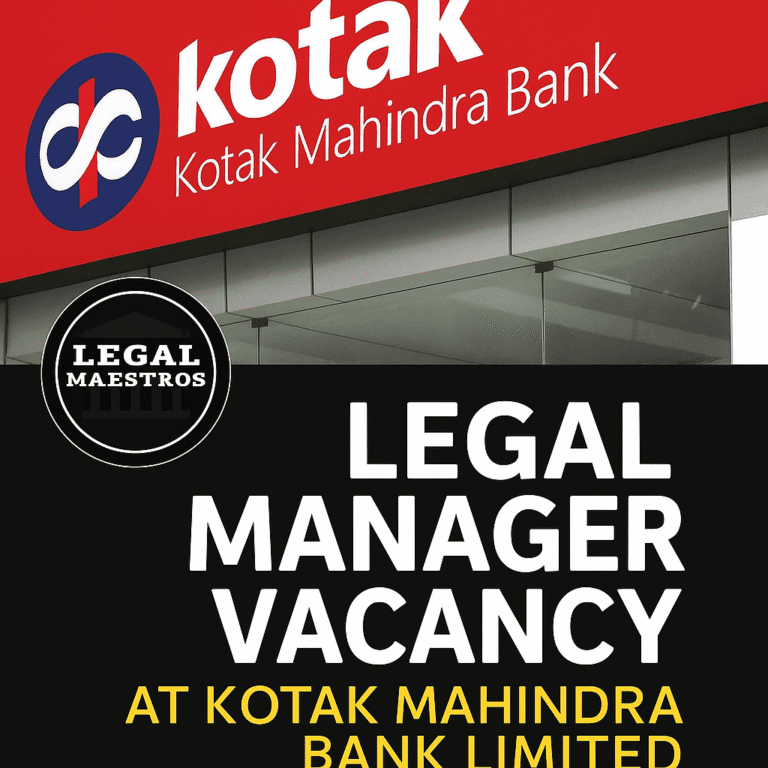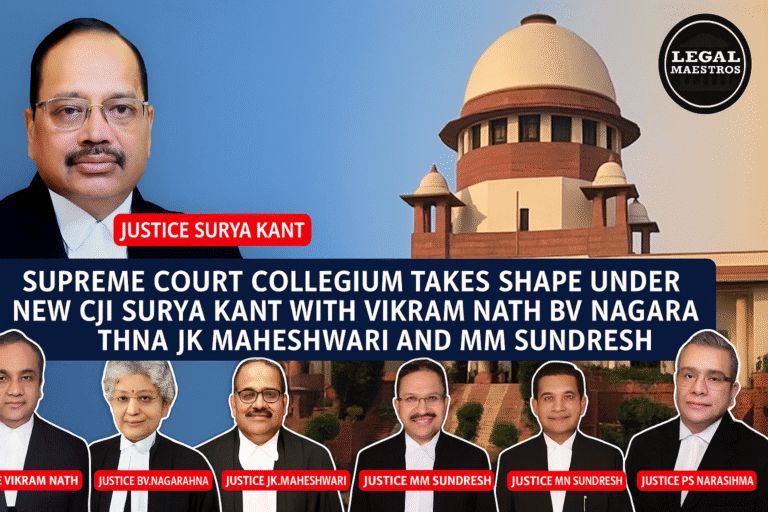
In a recent case the Supreme Court of India in a case called Sanjit Singh Salwan & Ors. V. Sardar Inderjit Singh Salwan & Ors. Has answered a basic legal question which is whether we can admit a plea of estoppel in law by one of the parties where he disregards his own conduct which has given rise to the other party acting to his prejudice? Involving a disagreement as to a charitable trust, the case explores the premises of estoppel, namely, the doctrine of approbation and reprobation, and underlines the significant role of uniform behavior at the stage of a legal dispute.
History of the contest.
This is a case concerning the Guru Tegh Bahadur Charitable Trust and both the appellant and respondents stated that they were trustees. The parties became involved in disputes, which prompted the respondents to bring a civil claim in an effort to bar the appellants from entering or impeding the Trust which operates a school located in the e-area. The appellants replied to this by making an application under order VII rule 11 of the code of civil procedure stating that the suit was barred by section 92 of the code. On April 13, 2022, the Trial Court concurred with the respondents and dismissed the plaint by ruling on the appellant.
The respondents who disputed the dismissal of their suit appealed to the District Court. When the appeal was pending, the parties settled on arbitration with the panel appointing only one arbitrator to settle the differences between them. On December 30, 2022, the arbitrator made an award in which it provided a scheme to deal with various issues of the Trust. This led to a joint application by both parties to the District Court whereby both parties accepted the award and agreed to comply with the terms of the award in question and sought the disposal of the appeal on the basis of that award. The appeal was in turn disposed of by the District Court on January 27, 2023, and the compromise deed, on which the award was recorded, was to be made a part of the decree. This ordinance wasn’t contested any further and assumed finality.
For any queries or to publish an article or post or advertisement on our platform, do call at +91 6377460764 or email us at contact@legalmaestros.com.
Centre for War
According to the appellants, they combined the parts of the award which the respondents had not. To implement the decree, the appellants first launched execution proceedings which were eventually abandoned so that they could make an application to the Arbitration and Conciliation of India Act, 1996, Sec. 9 that would allow them to seek interim measures depending on the arbitral award.
Here the answer of the respondents was transformed dramatically. They resisted the use of it on the basis that the award made by the arbitrator was declared illegal on the basis that the controversies touching on the affairs of the Trust were not arbitrable under Section 92 of the Code of Civil Procedure. This argument was embraced by the Commercial Court, which decided that the award was nullity and not thus enforceable. This decision was affirmed by the High Court which held the dispute as non-arbitrable and accordingly took up the appeal made by the appellants, refusing to set aside the order passed by the lower court on the basis of arbitrability. The appellants subsequently went to the Supreme Court.
The Arguments Of The Appellants
The counsel representing the appellants Mr. C.U. Singh before the Supreme Court submitted that with the award of arbitrator being accepted by both the parties resulting in a final consent decree, the respondents could not, on the basis of estoppel, challenge the validity of the award of the arbitrator. The appellants had acted on the decree having taken steps to fulfill their obligations like withdrawing a First Information Report and giving up money just to change to their disadvantage. Mr Singh argues that the behavior of respondents agreeing to the decree and subsequently attempting to render it invalid is a form of approval and disapproval and is prohibited.
The counter-argument of the Respondents
As per their counsel Mr. Gagan Gupta, the respondents claimed that the award was a nullity since it decided matters that were non-arbitrable under Section 92 of the Code. They claimed that no invalid award would or could be enforced and that the principle of estoppel would not apply between a party and the rule of law because the question of jurisdiction touches on the very basis of the matter and may be pleaded at any time.
The Torrens Title Act establishes an etaoppel. The Supreme Court Ruling on estoppel
Having considered the arguments and looked at the facts, the Supreme Court quashed the orders of the Commercial Court and the High Court. The basis of the judgment by the Court focused on estoppel by conduct and election. The Court focused on citing that the respondents were the initial transmitters of the civil suit whose claim was not prohibited under Section 92 of the Code. That being so, they voluntarily submitted the matter to arbitration, and, upon the award being made, they together applied to the District Court to have their appeal determined in accordance with the provisions of the award.
The Court established that the further action by the respondents to have the validity of the award contested was an impermissible and diametrically opposite stand. Such is not an example of inconsistent conduct in an unequivocal instance of approbation and reprobation as a party receives the advantage of a transaction and then denies the other side of it which is disadvantageous. The Court determined that the respondents had induced the appellants into thinking that they had agreed to the award and what it entailed thereby making the appellants act to their disadvantage. The judgment provided that what was involved was not estoppel as against a point of law but an equitable obstacle to estoppel by conduct and choice.
The Supreme Court ruled that the respondents were now barred from questioning the validity of the compromise deed on the basis of the award of the arbitrator. It held that the appellants who had been lulled into thinking that the matter was already resolved in arbitration proceedings and the recovery of the decree in the lower courts had been denied redress as a result of the decision of those lower courts. The Court has acknowledged that a compromise decree that had not been disputed had already acquired finality and the appellants ought to be left to reap the benefits of the decree. In that way, the Court gave the appellants a chance to reinstate their appellate execution and left their determinations to themselves and in pursuit of the law.







